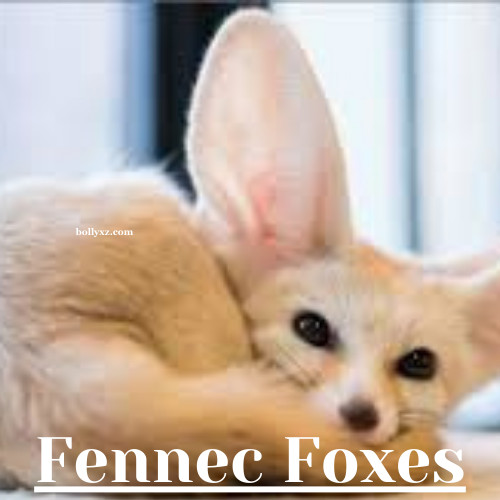The small, huge-eared Fennec Foxes can be found in the arid lands of the Sahara in North Africa, except in coastal areas. The fennec is the smallest canid. The animals are typically sandy-coloured and blend in with their desolate surroundings. Their ears, which may be the largest within the canid family, serve to help dissipate heat. Their fur can repel sunlight during the day and conserve heat at night. The thick fur on the fennec’s paws protects it from the cold sand.
The fennec fox is nocturnal. At night, it may hunt rodents, insects (including locusts), lizards, birds, and eggs. Fennec foxes obtain most of their water from food but sometimes devour berries and leaves as an additional source of water.
Fennecs fox live in large dens, usually with several foxes. The simple social unit is considered a mated pair and their offspring, and the previous year’s offspring are thought to remain in the same family even after a new litter is born. Play behaviour is common, even among adults of the species.
Fennec fox are quite social in behaviour, usually resting while also being in contact with each other. They mate for life, with each pair or family controlling its territory. A male or female reaches sexual maturity at 9 months. The species typically breeds only once a year. The copulatory bond has been recorded to last up to two hours and forty-five minutes.
After mating, the male becomes very aggressive and protects the female, providing her with food during her pregnancy and nursing periods. It is usual for the gestation period to last between 50 and 52 days. The daily litter size is between one and four pups, with weaning occurring at around 61 to 70 days. When born, the baby’s ears are folded and the eyes closed, with the eyes opening at around ten days and the ears standing up soon after. The lifespan of a fennec fox has been recorded to be up to 12 years in captivity and up to 10 years in the wild.
THREATS TO Fennec Fox
The fennec is rare and not always seen regularly. They are often hunted by people, even though the fox does not cause any harm to human interests.
Fennecs are regular victims of the animal entertainment industry. They are often seen on display in zoos, roadside zoos and “nature safaris”. Like many captive wild animals, they face constant pressure and are denied their wild nature, strong family bonds and natural social interactions. The wants and needs of people are put before the wishes of the animals in the animal entertainment industry.
They are tremendously intelligent and social animals, but they also suffer extraordinarily in the inhumane pet trade. They are sold as toys through unethical organisations and third-party breeders, with money being put before animal welfare. Animals are acquired by poorly trained owners, often with little knowledge of their care. Their complex physical, psychological and social needs cannot be met in any way if they are kept as pets.

